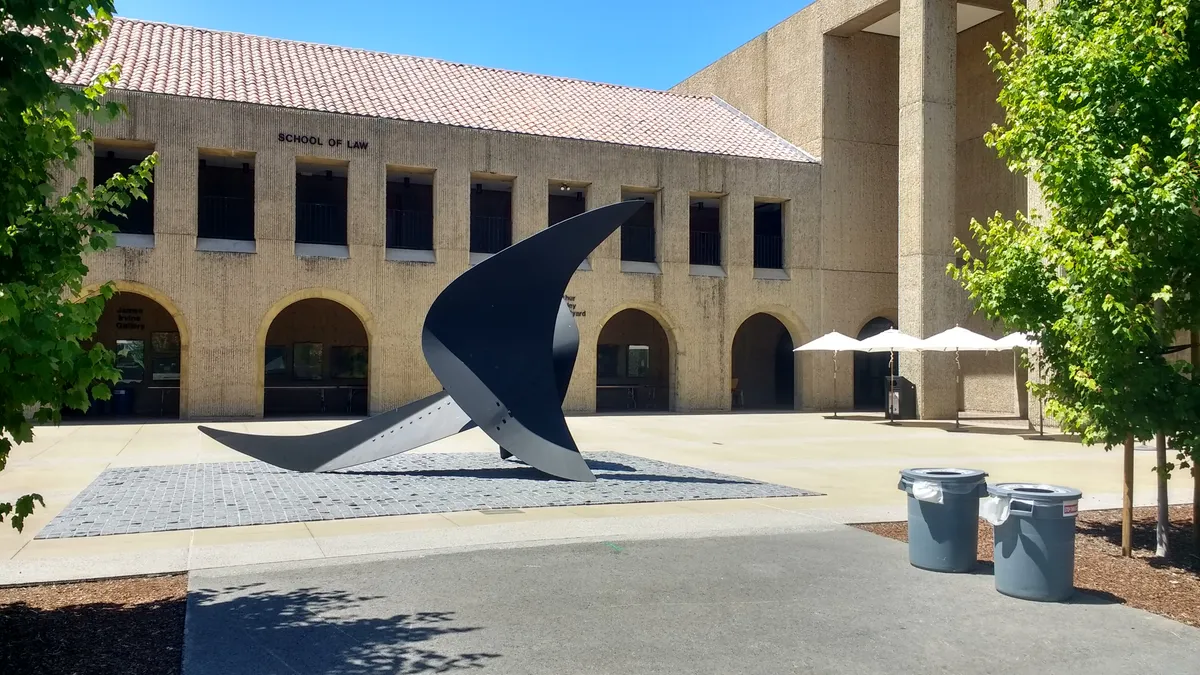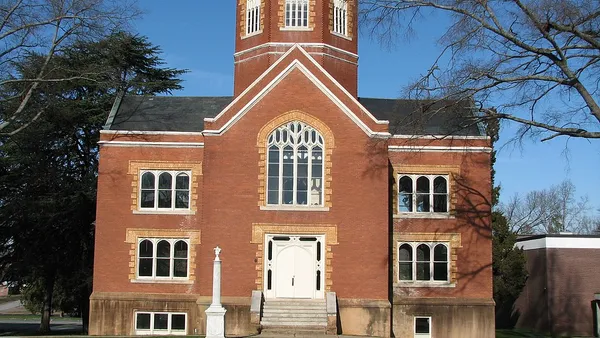Dive Brief:
- Stanford Law School will allow some students to fund their law degrees with an income-share agreement, in which they will pay back tuition costs through a portion of their salaries over 12 years.
- The law school is working with a nonprofit, Flywheel Fund for Career Choice, on the pilot program, which will initially be open to 20 students. The law school attendees will be able to have up to $170,000 of their tuition covered upfront in exchange for paying back 10% of their salaries.
- Stanford Law will cover entire payments for those who end up earning less than $100,000 a year and part of the costs for those who make between $100,000 to $115,000 per year. Unemployed graduates will not need to pay anything until they secure a job. Officials presented the program as a method for graduates to pursue a greater scope of careers without being burdened with high debt.
Dive Insight:
Income-share agreements have emerged as controversial financing tools in an era of high college costs.
The model’s backers say enabling students to pay for their education with a percentage of their post-graduation earnings ensures they won’t face ruinous amounts of debt. But ISA detractors argue these deals can leave students paying back more than if they'd taken out loans, and that borrowers don’t always understand terms of such agreements.
Critics also say ISAs should be treated as loans and thus more closely regulated — an assessment federal agencies have agreed with in recent months.
The federal Consumer Financial Protection Bureau last year deemed ISAs loans. At the same time, it took aim at a provider, the Virginia-based Better Future Forward, ordering it to change its ISA disclosures and to stop saying the deals are not loans. Better Future Forward announced this month it struck a compliance deal with the CFPB.
The U.S. Department of Education also said in May that ISAs are private loans and subject to oversight.
Stanford Law’s income-share program will begin in fall 2022 and intends to help students interested in entering public interest and service positions. Officials stressed students in the ISA will not have to repay more than they would have had they instead taken out a traditional graduate-level loan.
The nonprofit the law school is working with, Flywheel Fund, was organized by Harvard and Stanford law school alumni. Flywheel Fund “will use philanthropic contributions to provide current Stanford Law students” the income-share funding.
Monthly payments in the program won’t be able to exceed $1,875, protecting even the highest-earning borrowers “from unwieldy repayment sums,” Stanford Law said.
The law school chose the $170,000 threshold based on the median amount current and future students are expected to borrow. Stanford Law lists its 2021-22 tuition at $64,350 and suggests students budget at least $107,055 to attend each year to cover housing, books and other costs.
The American Bar Association said law school students graduate with an average $130,000 in educational debt, including from their undergraduate degree.
“We are grateful to the Flywheel Fund for approaching us to work with them and for providing the financial and technical support to launch this pilot program together,” Jenny Martinez, dean of Stanford Law, said in a statement. “Piloting a potentially innovative new model for financing a legal education is part of our overall efforts to support diversity among our students and in the careers they are able to pursue.”














